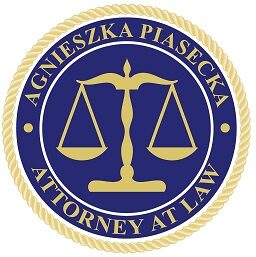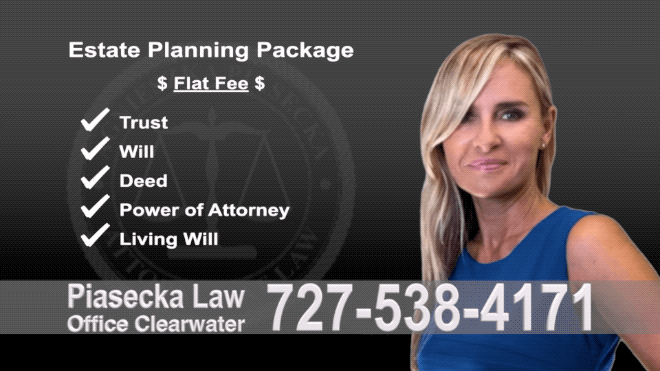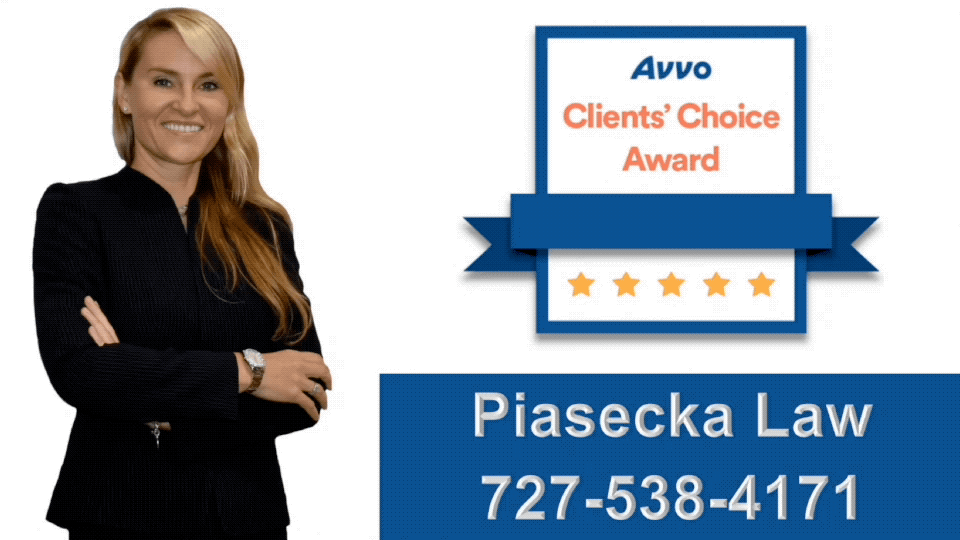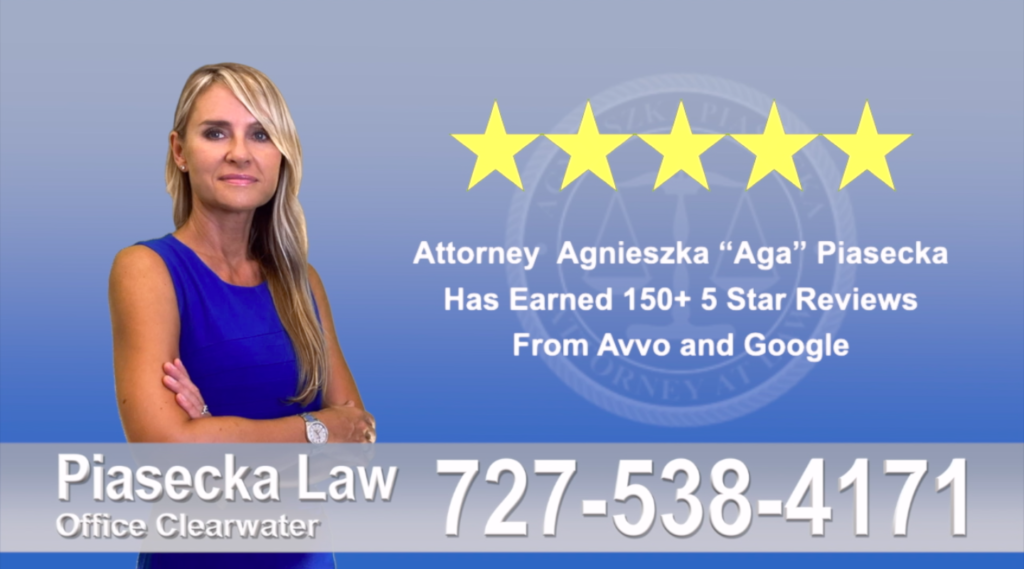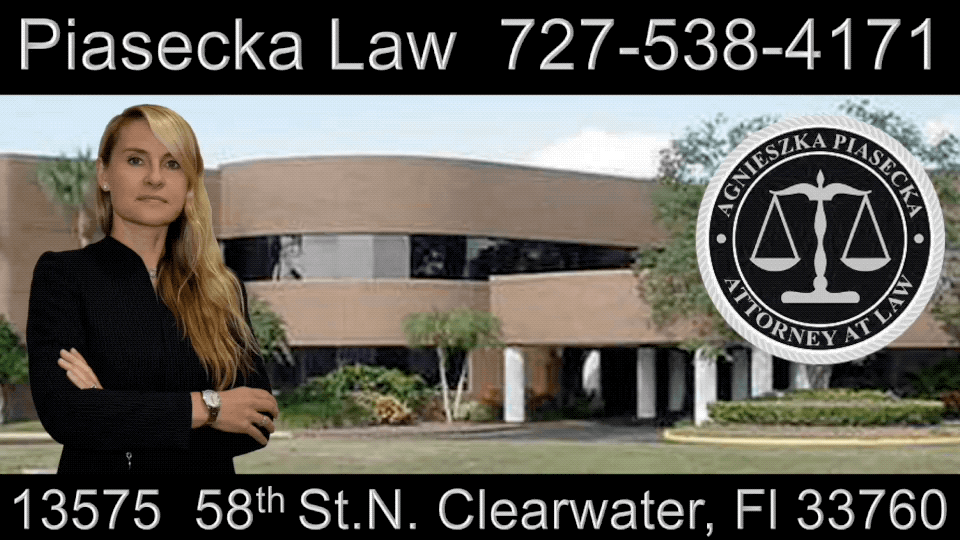Estate Planning Clearwater Attorney Agnieszka “Aga” Piasecka
Attorney Agnieszka “Aga” Piasecka is an Estate Planning, Wills and Trust, Lawyer in Clearwater with more than 20 years of combined experience in Poland and Florida. Aga speaks fluent Polish, Italian and English and is an Attorney in Florida and Poland. Attorney Aga Piasecka obtained her Juris Doctorate Cum Laude from Stetson University College of Law in Florida and her Masters Degree in Law with Honors from Jagiellonian University in Poland. She also studied International Law in Holland. Attorney Aga Piasecka is fluent in Polish, Italian and English and can assist you with your legal needs in Florida.
Attorney Agnieszka “Aga” Piasecka, Wills and Trusts Lawyer Clearwater Florida
727-538-4171
813-786-3911
Will vs. Trust ?
What is the difference between a Will and Trust?
Which is better a Will or a Trust?
Should I get a Will or a Trust?
What is a Trust?
Trusts
A “trust” is a legal arrangement regarding property, in which the creator of the trust (called Settlor) transfers ownership of assets into care of another person (called Trustee), who holds legal title to property of the settlor with equitable duties to administer it for the benefit of a third person (called Beneficiary). A settlor can be the same person as trustee and there can be more than one beneficiary of the trust. In order to form a valid trust, one must meet certain legal requirements. The document that establishes the responsibilities of the trustee and the rights of the beneficiaries is called the “trust”, “trust instrument” or “trust agreement”.
The main advantage of creating a trust (as opposed to a will) is to avoid probate proceedings and spare your beneficiaries the expense and delay of probate court proceedings after your death. Certain trusts can be also used for asset protection against creditors.
There are many different types of trusts including:
1. Living trusts
A living trust, also called inter vivos trust is created during the settlor’s lifetime . Living trusts can be either revocable or irrevocable.
a. Revocable trusts
The settlor remains in control and ownership of his or her assets and can be changed and terminated at any time. This type of trust does not provide protection against creditors but it is an excellent tool to dispose of your property after death by avoiding probate proceedings.
Once assets are transferred into the trust, they belong to the trust itself, and remain subject to the rules and instructions set up in the trust instrument. The trustee has a fiduciary duty to administer the trust funds accordingly for the benefit of trust beneficiaries. At settlors death, the trust assets pass directly to the beneficiaries and avoid probate proceedings.
b. Irrevocable trusts
Once the irrevocable trust is created, the settlor can no longer control trust assets, modify, change or revoke the trust instrument. Once a property is transferred to the irrevocable trust, no one, including the settlor, can remove the property out of the trust. Generally, this type of trust provides protection against creditors and assures that upon your death, your assets are passed to trust beneficiaries and not to your creditors. However, a court can sometimes invalidate an irrevocable trust if it finds that the trust was established with the intention of defrauding creditors. Therefore, it is important to plan for asset protection well before you even anticipate to be subject to any creditor claims.
2. Testamentary trusts
A testamentary trust, also called a “will trust” or a “trust under will” is set up in a will . A testamentary trust is established only after the settlor’s death, in which it differs from a living trust, which is created during the settlor’s lifetime.
3. Charitable trusts
A charitable trust is established with the intent to benefit a specific charity or general public rather than a private individual or entity. Charitable trusts are eligible for a favorable tax treatment and they are often established as part of an estate plan to lower or avoid imposition of estate and gift tax.
4. Spendthrift trusts
A spendthrift trust is created for the benefit of a person, who is often unable to manage money and control his or her spending and it gives a trustee an authority to make decisions as to how the trusts funds may be distributed and spent for the benefit of the beneficiary. Such a trust limits the beneficiary’s access to the trust funds and also provides protection against beneficiary’s creditors. The beneficiary is prohibited or restricted in assigning present or future income and/or principal in the trust to his or her creditors.
5. Discretionary trusts
A discretionary trust is a trust, in which a settlor has delegated nearly complete or limited discretion to the trustee to decide as to how the trust income and/or principal is distributed to beneficiaries.
6. Support trusts
A support trust is a discretionary trust, in which a trustee has discretion to pay the beneficiary as much income or principal as the trustee believes is needed for support or the beneficiary. The type of support can be determined by terms of trust e.g. “for comfortable support” or for “support in accordance with the beneficiary’s standard of living”. Such a trust provides the beneficiary with partial protection from creditors. The beneficiary’s interest cannot be voluntarily transferred or assigned and is unavailable to general creditors but creditors, who provide necessaries to the beneficiary can usually reach it.
7. Totten trusts
A totten trust, also called “POD (Payable Upon Death) Account” is a revocable trust created during the lifetime of the settlor by depositing his or her money into an account or financial institution, typically in a savings account, in the depositor’s name as trustee for another. An individual or an entity can be named as beneficiary. Upon the settlor’s death, the money passes directly to the beneficiary and avoids probate. A totten trust can be revoked at any time as the gift is not completed until the settlor’s death. A totten trust is commonly used to indicate a successor to the bank account without having to create a will.
8. Self-settled trusts
A self-settled trust is a type of trust, in which the settlor is also the beneficiary, i.e. the one, who receives benefits from the trust.
Clearwater Estate Planning Attorney – Free Consultations & Flat Rates
Aga offers Free Consultations and Flat Rates on creation of Wills, Trusts, Quit Claim Deeds and Powers of Attorney.
For a free consultation please call:
727-538-4171
813-786-3911
Agnieszka Piasecka’s Avvo Reviews:
https://www.avvo.com/attorneys/33760-fl-agnieszka-piasecka-4581259/reviews.html
Agnieszka Piasecka’s Client Reviews:
https://piaseckalaw.com/reviews
Office Location, By appointment only
13575 58th St N, Clearwater, FL 33760
Attorney Agnieszka “Aga” Piasecka, Wills and Trusts Lawyer Florida.
